As we become adults, we’re much less inclined to “play” as a general rule. It’s one of the MANY reasons I believe pets are such an important part of our lives – they help us reconnect with that youthful playfulness which is so very good for us. There are a myriad of benefits to playing with your pet, both for you and them, so…
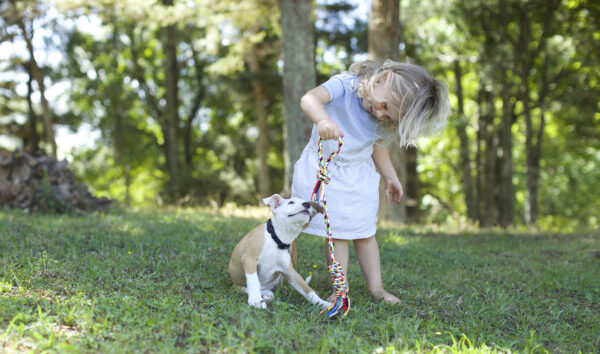
Why play with your pet?
-
- Strengthens Your Bond
Play is a powerful bonding tool! It can build your connection, trust, and improve communication, which in turn will help your pet focus on you and be more responsive to you in life overall. The one-on-one attention you give each other during play also creates companionship and helps your pet associate you with positive experiences. - Helps Pets Learn Crucial Behaviours
Just as human babies engage in peek-a-boo and tag to develop social skills and coordination, animals partake in their own versions of play to refine their abilities. From a young age, animals like puppies, kittens, and even foals engage in play to explore their environment, understand their physical limitations, and practice crucial survival skills. In a domestic setting, playtime mimics the learning process that would occur in the wild, helping pets to adapt to their surroundings and develop essential life skills. Animals learn much of their adult behaviour during play! - Leads to Better Behaviour
Play offers mental stimulation that helps prevent boredom and the associated problematic behaviours that can stem from it, like destruction, digging or barking in dogs. A pet that’s getting lots of good stimulation and enrichment is more likely to be able to generally relax and behave better as they have an outlet for this natural instinct.Play can also help reinforce desirable behaviours e.g. playing fetch or hide and seek can improve your dog’s recall, and dipping in and out of play can help teach your pet restraint and impulse control (valuable in so many ways).Moreover, play can be a powerful tool for behaviour modification. By redirecting a pet’s energy into play, undesirable behaviours can be replaced with positive alternatives. For example, a dog with a penchant for digging might find fulfilment in digging in a designated sandbox, or a dog that’s too mouthy can be redirected into playing tug-of-war with a tug toy.Plus a pet that’s a bit tired out by some good play time is more likely to be calm and attentive, making it easier to teach them new skills and reinforce good behaviour. When working with dogs that pull on the lead, I always recommend a good play session before heading out to practise – you’ll be much more successful, giving you the chance to reward that nice lead-walking you want to see! - Physical & Mental Stimulation
Playtime isn’t just a frivolous activity; it’s a crucial aspect of your pet’s overall well-being. Cats and dogs typically spend a lot of the day resting, so engaging in physical activities like chasing a ball, leaping for a feather toy, or friendly tug-of-war provides the exercise they need to maintain a healthy weight, strong muscles, and good cardiovascular health. But it goes beyond that – pets are not machines. Just as we need a variety of activities to make our life feel rich and interesting, pets also need stimulating activities to thrive. While some of us may enjoy going to the gym for physical exercise, we also might enjoy other activities likes reading, cooking, walking in nature, going to the movies, being creative, doing a crossword, playing team sports. Variety is the spice of life, for us AND our pets. - Stress Reduction
Both pets and their owners can experience stress and anxiety, and interaction with pets serves as a natural stress-reliever for both parties involved*. Engaging in play releases endorphins, which promote feelings of happiness and relaxation**. For animals, this can mean a reduction in stress-related behaviours such as excessive barking, scratching, or chewing. Similarly, we humans can find solace in spending quality time with our pets.
- Strengthens Your Bond
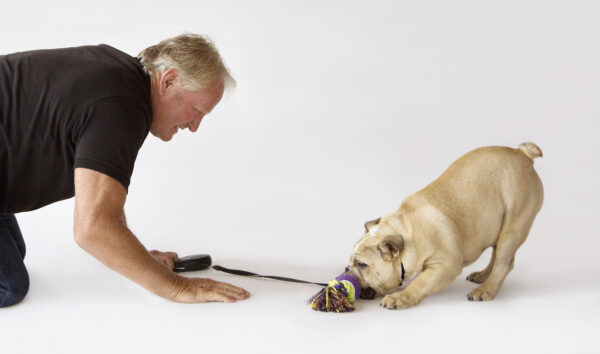
Can You Have Too Much of a Good Thing?
As with everything in life, yes you can. Though play is hugely beneficial for both you and your pet, you need to be careful not to over-do it. Excessive play can lead to:
Damage: Puppies that do too much high-impact play or exercise are at risk of long-term joint and bone damage. Avoid excessively rough play (with yourself and larger dogs), and don’t encourage high jumping or rapid changes in direction. Keep play interactive, engaging and on the gentle side while your pup is growing. As they mature you can step up the level.
Hyper-arousal: Some types of play can be highly arousing (depending on the pet). For example, chasing a ball at high speed creates high adrenaline for a dog, meaning they are intensely aroused. This is fine in moderation, but requires the dog to have some impulse control so that they can switch back into a calm state when necessary. If dogs are highly arousal too frequently, they can become difficult to settle, overly vocal and highly distractible. Similarly if you are always rarking your cat up with too much high arousal play, it can lead to overstimulation or intense play aggression.
Exhaustion: Don’t push your pet to the point of exhaustion, this can be easy to do with a pet who always seems to want more! Be particularly careful with dogs if you are using a ball thrower not to overdo it.
Over-demanding: Don’t play with a pet to the extent that they expect play on tap at all hours of the day or night. Make sure it’s within your control, and you can settle things down when you need to without your cat constantly pouncing on you, or your dog barking for more.
Easy Ways to Play With Your Pet
Dogs:
- You can’t go past the classic fetch and tug-of-war!
- Using a muffin tray, hide treats under tennis balls in each section. Your dog will love pulling the balls off to find the rewards hidden underneath!
- Bury some treats hidden amongst layers of old towels, blankets and pillows in a cardboard box for your dog to root around and find.
- Hide a treat under one of three cups, mix the cups up then let them “choose” (with their nose or paw) a cup that you turn over to reveal if they found the treat.
- While out on a walk, when your dog is distracted hide behind something and call for your dog to find you. When they find you, give a treat and lots of praise! Start by calling loudly and hiding in an obvious spot, then as your dog gets the idea you can begin to call or whistle more quietly and hide yourself more expertly!
- Set up a sandpit type area your dog can dig in. Occasionally bury bones, food or toys there and encourage your dog to find them.
- Hide a treat in the room and encourage your dog to “find it!”. When they do, give them praise and another treat. At first, hide it while your dog watches to make the game easy and help them get the gist, then gradually make it more difficult.
- Set up a makeshift obstacle course with household items to create jumps, balance beams and tunnels to lead your dog through.
- A flirt pole is great for high energy dogs.
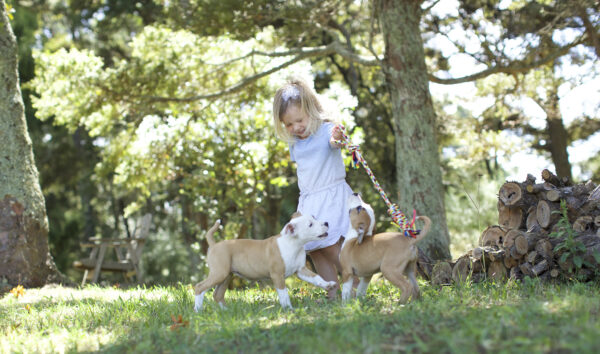
Cats:
- Fetch – yes some cats love this too (some breeds more than others)! Throw a favourite toy across the room then call your cat back to you.
- Puzzle feeders are a good enrichment option for cats.
- Tow a toy around the room on a string to mimic prey for your cat to chase.
- Toss a ping pong ball against a wall and watch your cat try to catch it!
- Hide treats up the tiers of a climbing toy for your cat to climb and find.
- Hold a toy under a large cushion, then pop it up from under the edge in different places for your cat to attack (whack-a-mole!).
- A flirt pole for cats is great fun too.
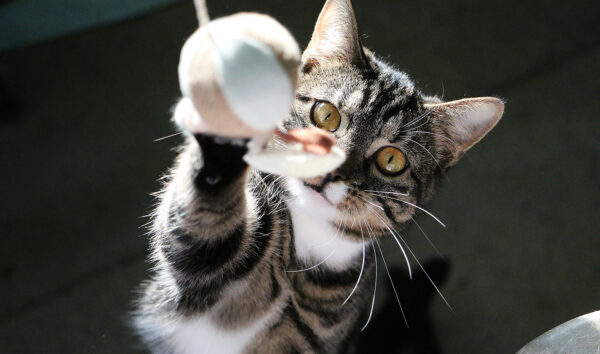
Enjoy! The role of play in your relationship with your pet is remarkable, providing physical exercise, mental stimulation, and emotional enrichment for pets, while also serving as a means of bonding and stress relief for you! So you have permission to go play and enjoy it, together.






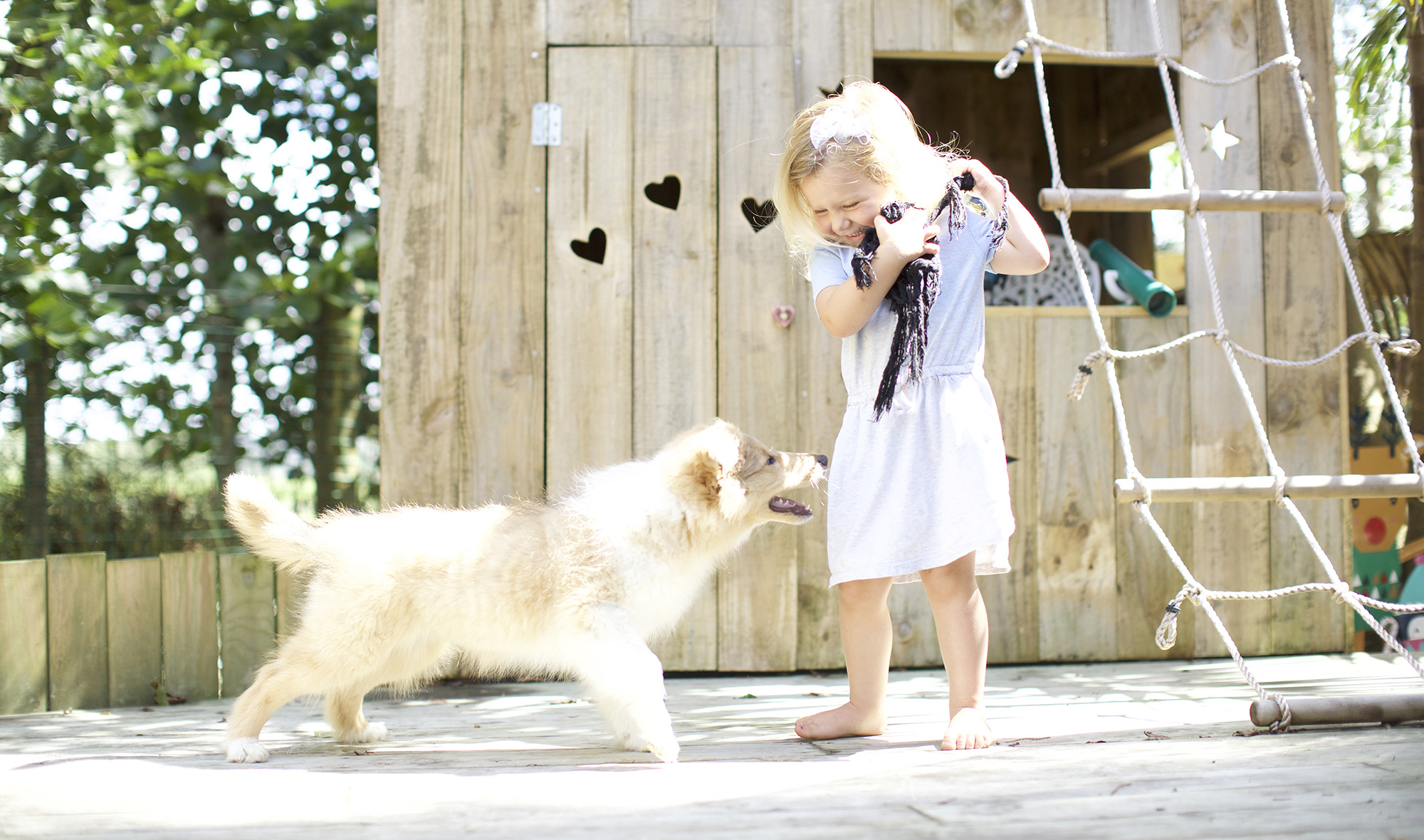
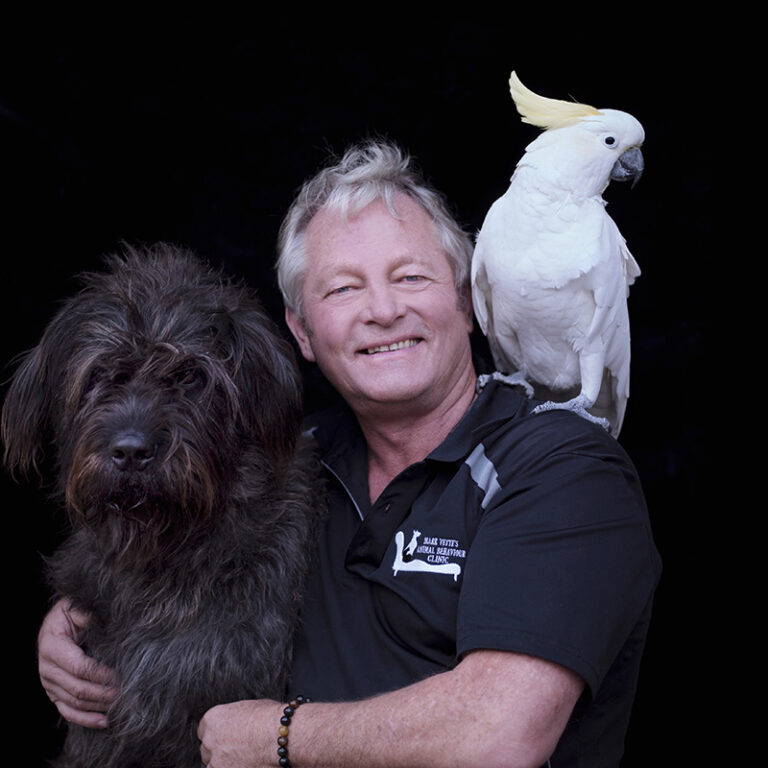

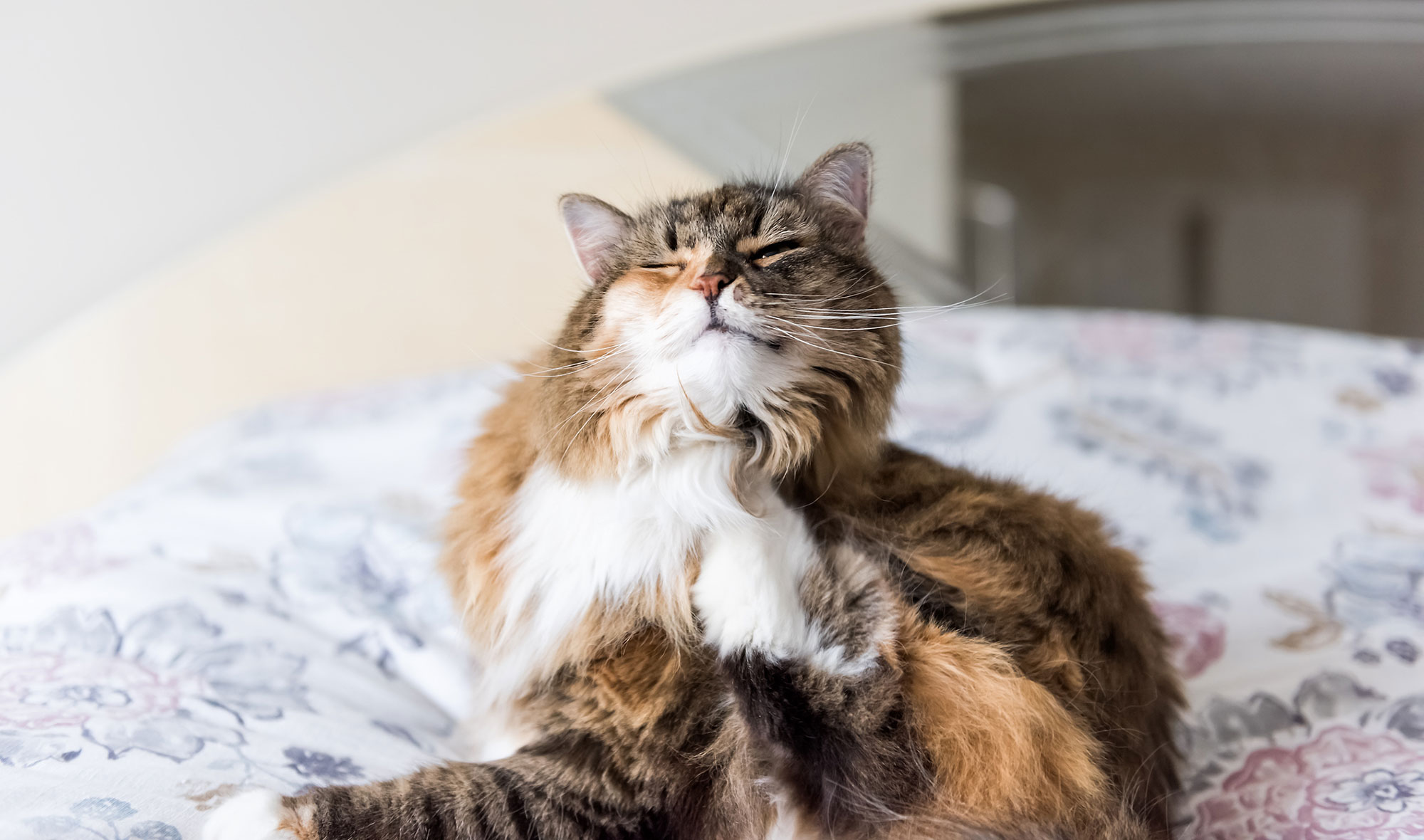
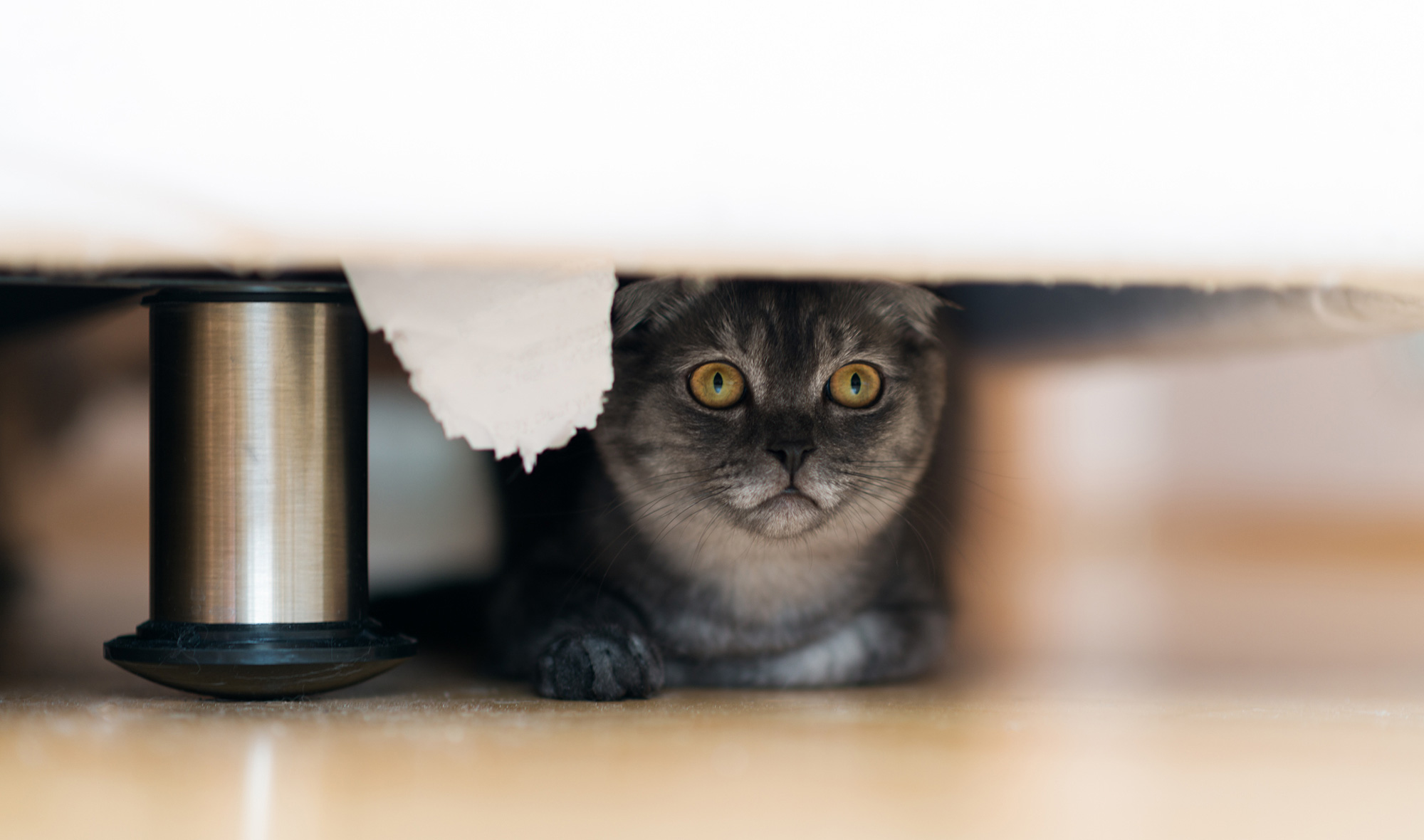




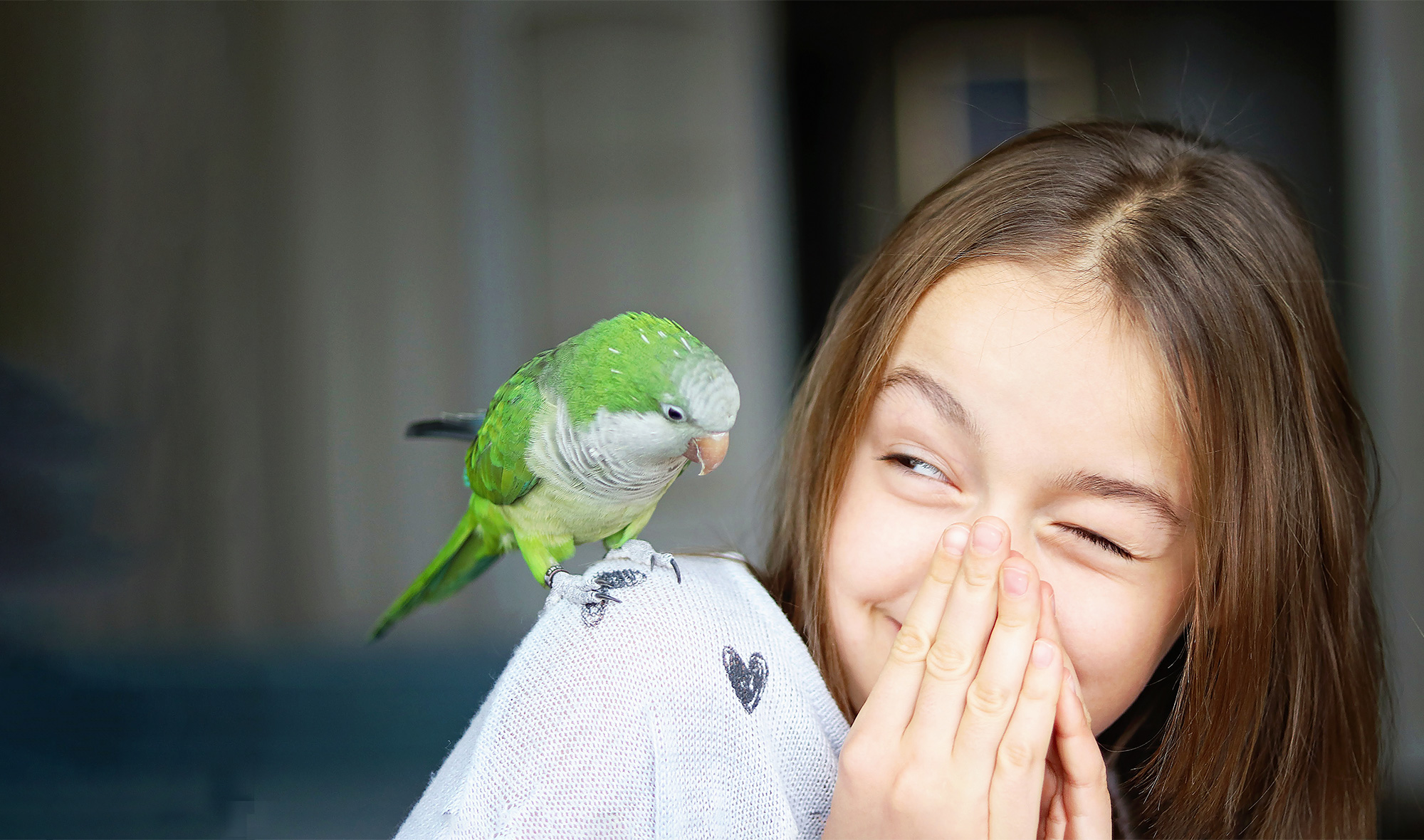
Community